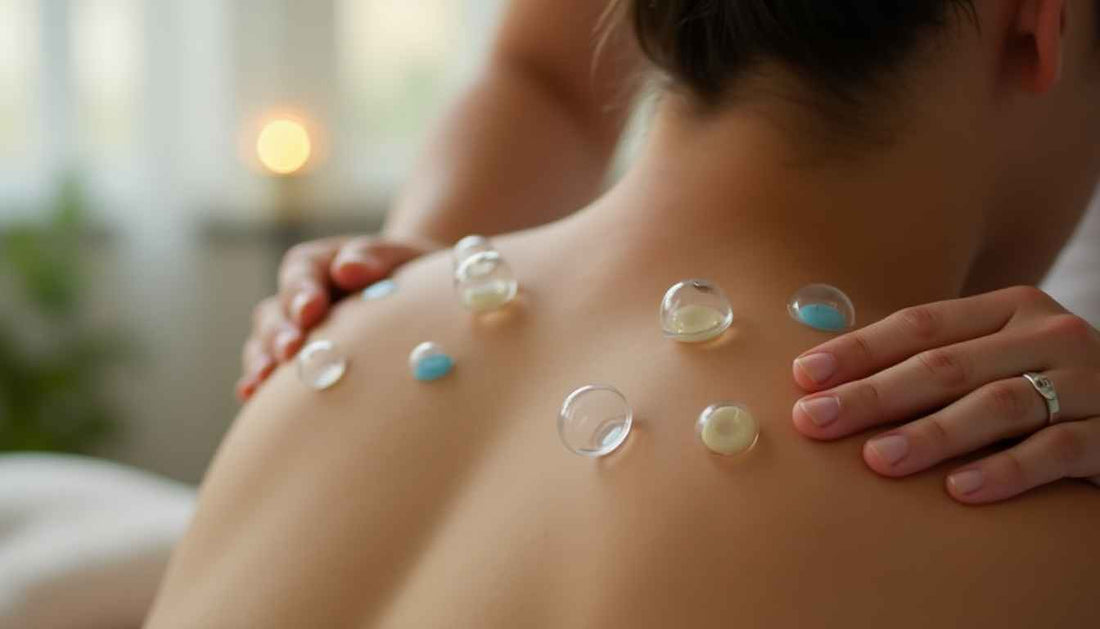
Cupping Therapy Benefits: What It Does for Your Body and Mind
Share
Cupping therapy, an ancient healing technique rooted in traditional Chinese medicine, is gaining popularity among athletes, wellness enthusiasts, and chronic pain sufferers. But what are the real cupping therapy benefits? From pain relief and detoxification to mental clarity and improved mobility, cupping offers a wide range of holistic advantages. This guide breaks down what cupping does, how it works, and why so many people are turning to it for better health and vitality.
Featured Snippet Answer:
Cupping therapy provides benefits such as pain relief, reduced inflammation, improved circulation, detoxification, muscle recovery, and stress reduction by creating suction on the skin to stimulate blood flow and promote healing.
Top 8 Benefits of Cupping Therapy
1. Pain Relief
Cupping helps relieve chronic back pain, neck pain, and joint stiffness by increasing blood flow and relaxing tight muscles.
2. Improved Circulation
The suction effect pulls fresh blood to the area, enhancing oxygen delivery and nutrient flow to tissues.
3. Detoxification
Cupping boosts lymphatic drainage and helps the body eliminate toxins, supporting liver and kidney function.
4. Reduced Inflammation
By improving circulation and reducing stagnation, cupping lowers inflammation in soft tissues and joints.
5. Faster Muscle Recovery
Athletes use cupping to recover from intense workouts, reduce lactic acid build-up, and prevent soreness.
6. Better Skin Health
Increases blood flow to the skin, reduces acne, and can even help smooth the appearance of cellulite.
7. Mental Relaxation
Many people report deep relaxation and reduced anxiety after a cupping session due to the parasympathetic nervous system response.
8. Respiratory Support
Used on the chest and upper back, cupping may relieve congestion, asthma symptoms, and coughs.
How Does Cupping Work?
Cupping involves placing special cups (glass, silicone, or bamboo) on the skin to create suction. This suction pulls the skin upward, loosening muscles, improving energy flow, and enhancing circulation. Techniques include:
- Dry cupping: Uses suction only
- Wet cupping: Involves small incisions for bloodletting
- Fire cupping: Traditional method using flame to create suction
Related Articles:
Who Can Benefit from Cupping?
- Athletes needing recovery support
- Individuals with chronic pain or arthritis
- People with high stress or anxiety
- Anyone seeking natural detoxification
Is Cupping Safe?
Yes, when performed by a certified practitioner. Mild bruising is common and typically fades in a few days. Avoid cupping if you have a bleeding disorder, skin infection, or are pregnant without medical clearance.
How Often Should You Get Cupping?
- Mild conditions: Once every 2–4 weeks
- Chronic issues: Weekly or bi-weekly sessions
- Athletes: Pre- or post-performance as needed
FAQs
What does cupping feel like?
Most people describe a pulling or suction sensation followed by deep relaxation.
How long do the cupping marks last?
Anywhere from 3–10 days depending on skin sensitivity and intensity of suction.
Can cupping replace physical therapy?
Cupping can complement physical therapy but should not replace it entirely for serious injuries.
Does cupping release toxins?
Yes. Cupping stimulates the lymphatic system, helping the body clear toxins naturally.
Internal Links:
- Cupping Therapy Explained
- Cupping Therapy Process
- Cupping Therapy for Muscle Recovery
- Cupping Therapy Effects
CTA:
Want to experience the healing power of cupping therapy? Download our Free Beginner’s Guide to Cupping Therapy and find out which method is right for you. Start your wellness journey today!
